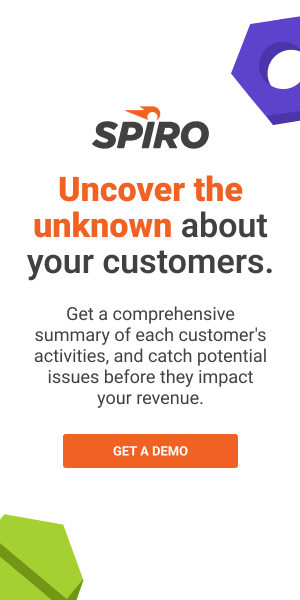Selling the Future of Sales Technology
Do you remember a time when generating new leads meant pulling out your rolodex and making hundreds of calls with a rotary dial phone? It may sound like a story your grandpa tells, but when I started my sales career, the only tools we had at our disposal were the telephone and the Yellow Pages. But it’s now 2016 and we’ve come a long way since then.
In today’s world, the intersection of seemingly boundless technological capability and a demand for deeply customized solutions has created a change in the way products are created and marketed to customers.
There is the expectation that individual whims can be delivered upon, so businesses in every sector are scrambling to cater to these demands, for a price that is. Turn-key, bespoke, personalized products and services are being developed every day to make out lives easier and “simpler”.
Well, hold on, because 2016 will be the year we see this trend spread through the sales segment like wildfire.
Manual CRM Data Collection Will Be A Thing of the Past
Salespeople are facing more demands on their time than ever – why do we still have to waste precious minutes entering data into a CRM? Well, we don’t!
Smart new sales apps, like Spiro, will capture data and log it into Salesforce in real time. The customers are demanding it, which means vendors everywhere, such as WalkMe, Ebsta, and even salesforce.com, are putting countless time and energy into helping make data entry easier.
[mc4wp_form id=”30369″][/mc4wp_form]
Data entry automation features will not only become more commonplace, they will become expected by salespeople in 2016. After all, salespeople excel at selling and they need to keep focused on that part of their job. The software should do the rest.
CRMs Will Take a Vertical Leap
CRM solutions have, for the most part, focused on the broad, horizontal market. But think of the big cash-heavy industries, like pharmaceuticals and government. Why would you not want to cater to these behemoths? Perhaps in the past, companies have shied away from these slow moving giants, but that will change in 2016.
Take a look at Siebel – they were the first enterprise CRM to take on big customers by offering turn-key solutions, and it helped fuel their growth. Over the past few years, we’ve seen quite a few examples of verticalized CRM developers follow suit: Veeva, Vlocity, OpenGov.
In 2016 we will see this new segment grow into its own. And who will has the most profound positive effect on? Largely the IT departments, as they will save time and hassle by having a tailored product right out the gate.
Salesforce.com Will Woo Salespeople Once More
The CRM mogul is beginning to realize that other CRM platforms, like BaseCRM, are starting to attract Salesforce users by offering a better user experience and interface. I’m expecting 2016 to be the year the sleeping giant awakes from its slumber and starts to court salespeople once more.
In 2015, Salesforce started to stir from hibernation with the debut of Lightning, calling it “the future of CRM,” which gives anyone to capacity to build enterprise apps. Their acquisition of RelateIQ also signaled a change in the CRM king’s direction, specifically in the SMB market.
Once again, the draw is specialized solutions, with many new options out there that offer a fully customizable dash and personally suited insights.
Automated, Intelligent “Sales Assistants” are Here to Stay
2016 will be the year of sales apps that help streamline different aspects of the sales process across multiple devices. Apps, like Spiro, our AI-Powered CRM, feature smart technology that not only provides you with a simple to use interface, but also gives you insight into what deals will make you the most money.
Besides Spiro, I also use Charlie and Amy.xi. The Charlie app helps prepare sales guys before that big meeting. It combs through hundreds of sources and delivers a one-paged summary on your target company, or person, so you’re prepared with detailed company stats – even common connections and interests you may have.
The Amy app helps with setting meetings on your behalf by syncing with your calendar and email. Though there was an initial time investment in getting things running smoothly, I have used it before and found it useful.
I believe this will be the year this kind of integrative technology will take off for salespeople. We’re at a moment in time that the tools are available to make our lives easier than ever and tailored solutions are available for every industry.
[mc4wp_form id=”32639″][/mc4wp_form]

